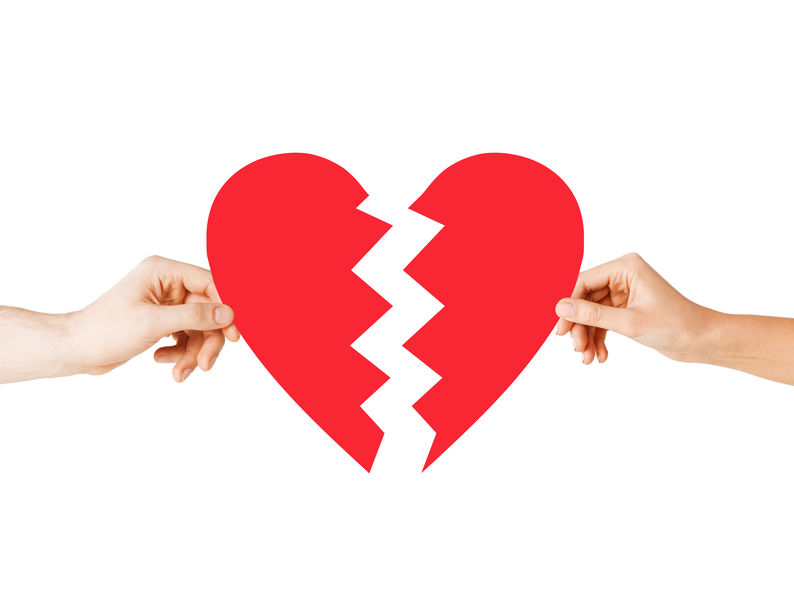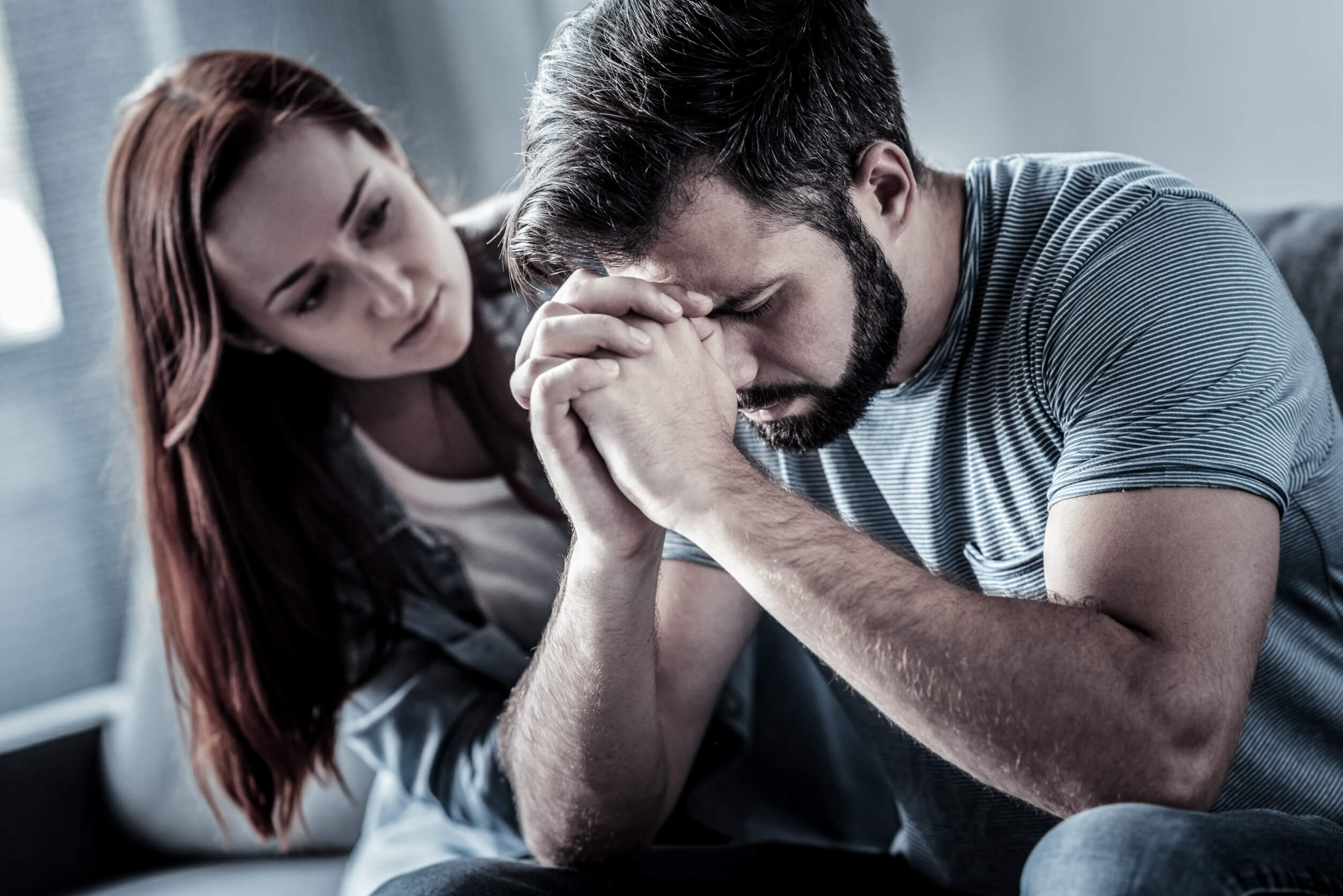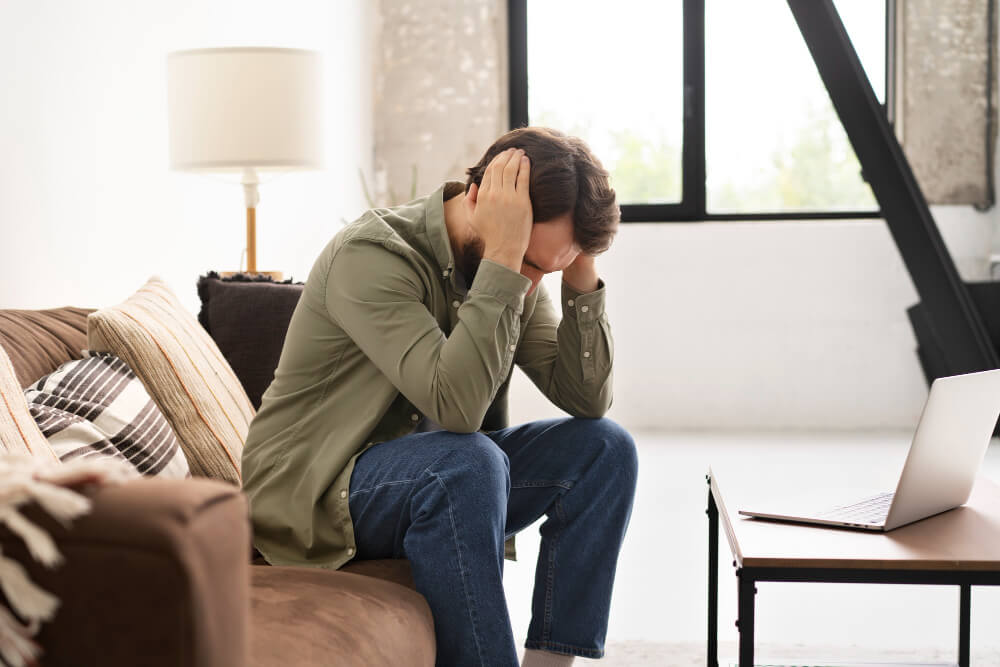Depression after a breakup can be a profoundly painful experience. Read below for tips from a psychologist on how to navigate this struggle.
When does normal sadness after a breakup turn into clinical depression? It would be easy if there were a set number of weeks after which it was “abnormal” to feel depressed after a breakup. Unfortunately, it doesn’t work that way.
How long you feel depressed after a breakup often depends on the length of the relationship. It depends on other factors like the circumstances under which things ended and the meaning you’ve ascribed to a relationship.
For example, a two-month relationship that you think of as a “fun fling” will be easier to deal with after it ends than a two-month-long relationship that you pinned all your hopes on. This illustrates an important principle in human psychology: How you think about an event influences how you feel about it. You can use this principle to your advantage — after a breakup, we can practice thinking in ways that will helpful.
You might have a lot of thoughts like “I’ll never meet anyone else!” How can you deal with these thoughts? It’s not helpful to tell yourself something encouraging that you just don’t believe, like, “I’ll meet someone even better next weekend!”
Instead, try telling yourself something that you know to be true and helpful, even if it doesn’t match the way you feel right now. For example, try something like this: “Lots of people enjoy my company, so I’ll probably date someone else at some point.”
Post-Breakup Depression
Sometimes depression lingers for a long time after a breakup. After a time, your family and/or friends start to worry about you and express concern. You can’t seem to get over it. In these cases, it is good to consult with a therapist. Depression is a problem to be taken seriously. If you feel depressed most of the time and it meaningfully interferes with your life, seek professional help.
Rejection: The Most Dreaded Post-Breakup Emotion
Perhaps the hardest part of romantic relationships happens when you encounter one of the most unpleasant emotions there is: rejection. It’s universal: no one likes being rejected. Having said that, some people react better to rejection than others.
Feeling rejected during a breakup can trigger feelings of despair or worthlessness. Sometimes these feelings lead to anger or depression. What can you do if you’re feeling rejected and suffering from some of these emotional consequences?
If these emotions are leading you to feel suicidal or to engage in dangerous behaviors (like excessive drinking), it’s time to seek professional help. If you’re not doing anything dangerous, but are merely miserable, remember: these feelings are understandable and temporary (more on this below). Often, letting these emotions run their course is the healthiest thing you can do. But if they start to feel persistent, or interfere with your ability to do your job, go to class, or live your life, it’s smart to consult with a therapist.
Rejection Affects Your Thinking
Rejection stings. Sometimes it shakes you to your core. When it happens in the context of your love life, it can lead you to think that no one will ever want to be with you or that there is something profoundly wrong or lacking in you. It can make you think it’s useless to even try to seek out the relationship you want. There are few experiences in life more dispiriting. I wish there was a magic cure that would make this feeling go away, but there isn’t one. However, there are a few strategies that are often helpful.

Remember: Everything is Temporary — Including Emotions.
Emotions are an important part of what is to be human — they help shape our interior lives. They are also temporary! Feelings of rejection are no exception. So remember that given enough time, even feelings of rejection will pass. Change is inevitable.
Mindfulness practice is the best way I know to get better at not getting sucked into emotions like despair, anger, or sadness that sometimes come up around the end of a romantic relationship. Mindfulness practice, done properly, is no small undertaking. It requires real commitment to working with your mind in a certain way, on a daily basis. However, if you’re up for the challenge, mindfulness practice can change your life.
Avoid Substances If You’re Experiencing Depression After a Breakup
Marijuana, alcohol, Klonopin, Xanax, and similar drugs can feel very tempting when we are experiencing feelings of rejection, despair, or loneliness. Indeed, they are likely to provide some short-term relief. However, the medium- and long-term consequences of using these substances can be counterproductive and will deprive us of the opportunity to experience the natural dissolution of these difficult feelings.
Be Wary of Anger — It Can Be a Trap
Often, there are a lot of reasons to be angry after a breakup. You may believe the other person mistreated you — and maybe you’re right! Maybe he or she didn’t give you a fair shot or didn’t bother to get to know the real you. It’s certainly understandable to feel angry about these things. However, sometimes anger is something we go to in order to escape sadness or to avoid doubts we have about our appeal as a romantic partner.
In a temporary way, anger is effective in distracting you from underlying emotions and doubts. The problem is, if anger leads you to start an argument with the other person, then you’ll likely end up with more to be angry about (Can you believe they said THIS to defend themselves? Unbelievable!), so anger ends up becoming self-perpetuating.
A healthier strategy is often to face those doubts and emotions directly, even if they hurt. There is value in letting yourself feel hurt or sad and experiencing how temporary that can be. If you can learn to address your doubts and tolerate these emotions, anger will often lose its appeal.
Summing up
Breakups can lead to many different feelings. When a breakup leads to symptoms of depression, remember the strategies described here and maybe you can make things a little easier on yourself.
Subscribe to the Manhattan Center for Cognitive-Behavioral Therapy blog!









